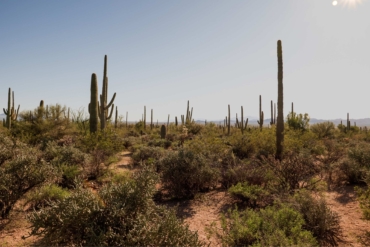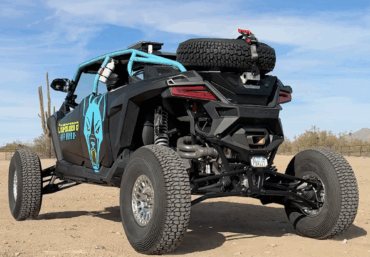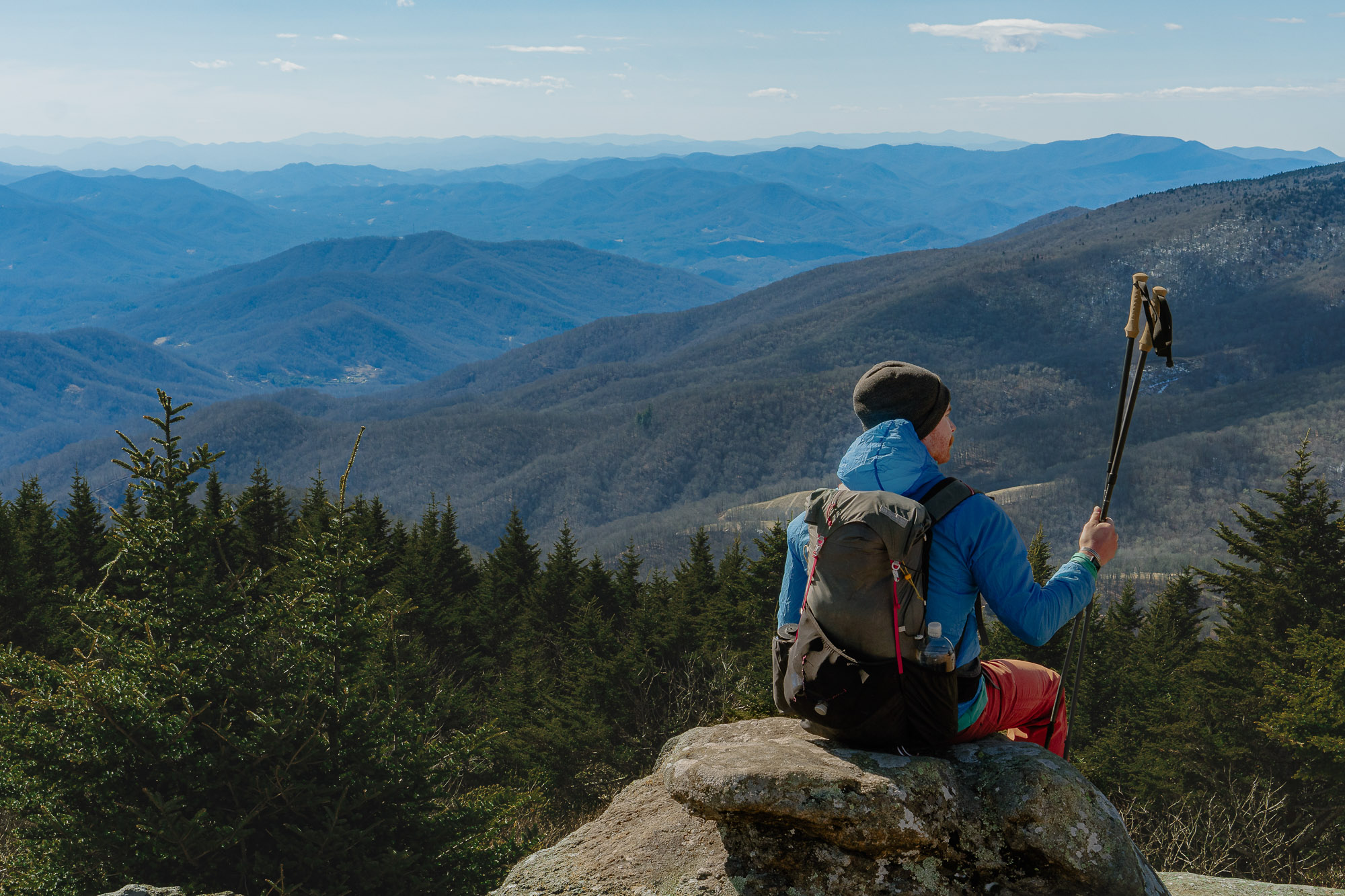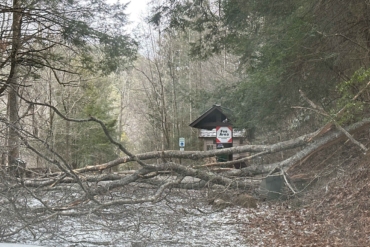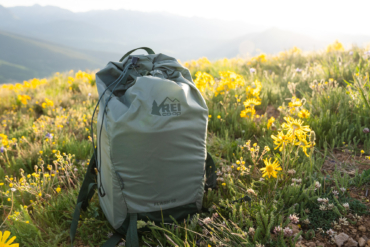In the world of ultralight backpacking, the weight weenie is king and the Katabatic Helios backpack (at just 33oz) is about as light as they come, all while being extremely durable.

Katabatic Gear specializes in ultralight backpacking gear. Originally founded on the idea of making ultralight sleeping bags, Katabatic has expanded into all manner of products, including bivy sacks, and, of course, backpacks.
A domestic bonus: All Katabatic Gear products are handmade in Colorado.
Looking for a new ultralight pack? Check out the rest of our recommendations in GearJunkie’s Best Ultralight Backpacks Buyer’s Guide.
Cuben Fiber Backpack
Last spring, we got our hands on the company’s Helios 55 ultralight pack for review. The pack is constructed from an extremely tough and durable fabric called Cuben Fiber, which is a polyester and Dyneema film laminated to a woven polyester face fabric.
Cuben Fiber laminates are exceptionally strong for their weight and the woven polyester face fabric provides superior abrasion resistance. Basically, that all boils down to two things; this pack is light and extremely durable.

The pack is a simple construction with a large internal main compartment. It has three stretchy external pockets, two on the sides and one on the back.
It closes using a roll-top, which also makes the overall capacity flexible. It has a sturdy hip belt with two zippered pockets and a sternum strap.

A series of cinch straps make securing unwieldy loads easy and also allows for a huge variation of what can be shoved in the external pockets.
The side compression straps work either inside or outside the side pockets and the compression straps can join each other across the back of the pack to carry oversized loads like snowshoes.
Fits ‘Week’s Worth’ Of Gear
It can stow a max of 63 liters of gear and food, and at its full capacity, we were able to fit basically a week’s worth of gear in the pack without it feeling floppy or overstuffed.
The Helios uses a flexible back panel, not a frame, to support the weight, and it is effective for the light loads carried by ultralight hikers. Coupled with compression straps, the load-bearing capacity of the Helios is one of the standout features of this pack.
From backpacking to day hikes, we spent several months with the pack in varied terrain and over varied amounts of time. This pack excels and feels good with up to a 35-pound load.
We backpacked the Superior Hiking Trail in northern Minnesota one long weekend. Over a rough, 12-mile day on the trail, the pack weight felt evenly distributed and, besides the sweaty patch on my back, I hardly noticed it was there.
The padding is thin on the harness and belt but appropriately designed. Even after multiple days with the pack I didn’t come down with a sore back or shoulders.
Ultralight Hiking Backpack

The Helios is first and foremost an ultralight pack. Weighing in at an impressive 33.6oz for the “large” size, it’s awesome for anyone looking to drop grams from their kit.
That said, there are certain limitations associated with it. Katabatic recommends a maximum pack weight of 40 pounds. We tried overpacking to about 55 pounds and the internal structure of the pack warped to the point where I could feel it jabbing into my back. Hiking with it was not an enjoyable experience.
For most ultralight backpackers, overpacking isn’t going to be an issue, but if your gear is running more than 40 pounds, beware that this might affect how it carries your load.
Fewer Pockets, More Problems
The pack also lacks the extra pockets and straps that would be found on a more traditional pack. At times, I found myself wishing for a couple external facing pockets that I could easily grab gear out of. Finding something in this pack often means digging to the bottom.

Also, because the Cuben Fiber is a sailcloth type material, it’s prone to crinkling. Moving over varied terrain where you’re having to use your arms a lot came with a fair amount of “pack noise.” Similarly, digging into the pack meant making a small, crinkly audial ruckus.
Overall Impressions
All in all, the Katabatic Helios is a standout ultralight pack. Durability combined with its light weight to make it a great choice for thru-hikers who are going to put a lot of wear and tear on their packs, or someone who wants to have this in their quiver for a long time to come.
At $350 it’s a pricier option in the backpack market, but you can rest easy knowing you’re getting something that oozes quality and is hand-made in the U.S.

